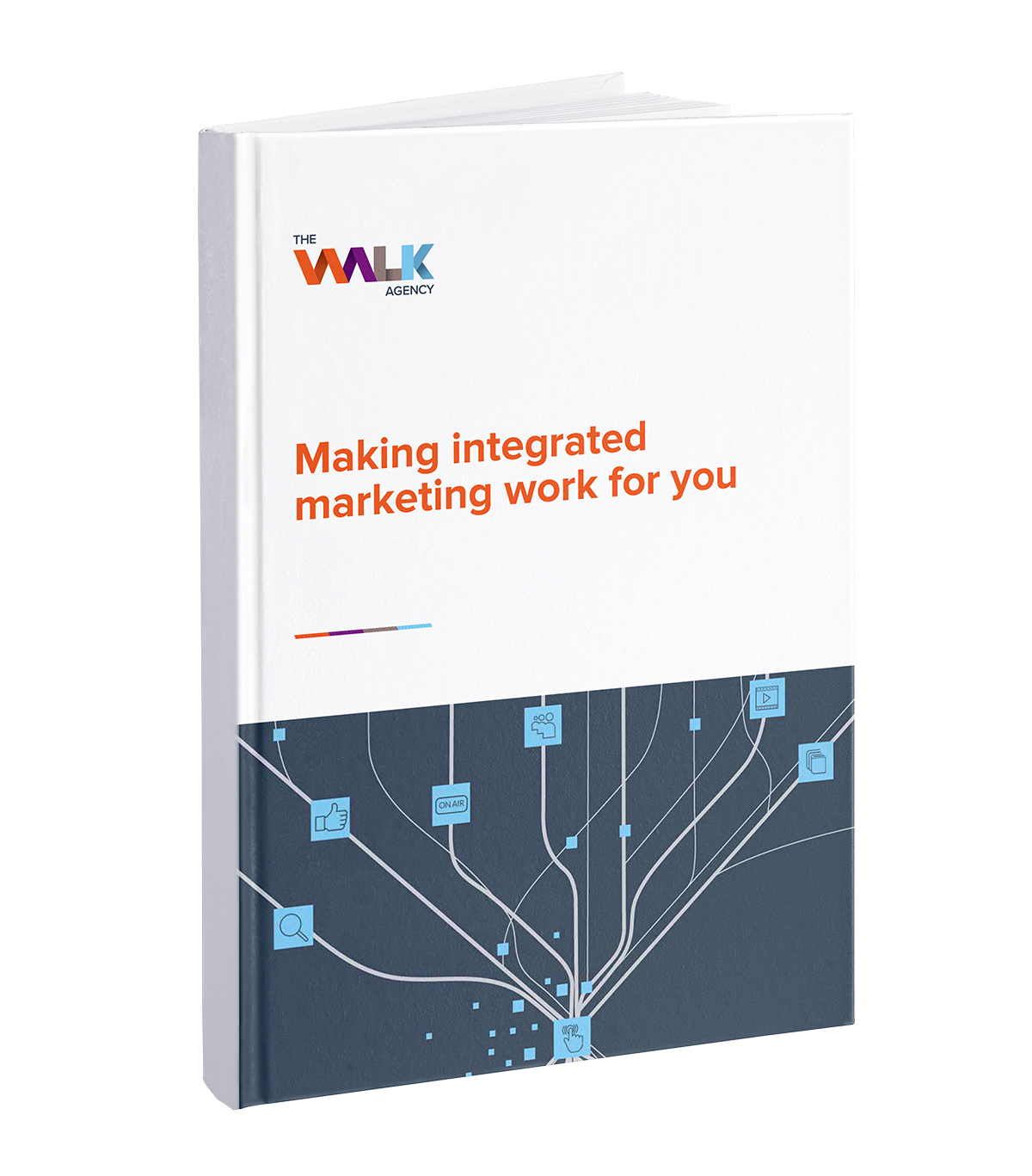Do you consider millennials to be a primary audience for your B2B marketing? If not, it’s time to consider that this generation are now emerging as new leaders and decision makers, presiding over important purchasing decisions in their organisations.
Millennials have grown up in an entirely different world than their preceding generation. Learning about their media consumption habits, how they engage with value-driven brands and their expectations around user-centric design and personalised experiences could help your marketing stand out for this new breed of B2B consumer.
Distrust for advertising, big love for social

Millennials have grown up with sensationalist advertising and are highly attuned to deciphering between inauthentic and authentic social content. Despite a lack of trust in traditional advertising, millennials are willing to invest in social media and often use these channels to determine whether a business is a fit for them. If your business is active on social media, it’s a good idea to clean up your social presence to build a clear brand identity and boost authority with these users.
97% of B2B marketers use LinkedIn for content marketing. For B2B’s who have not traditionally embraced social media to the extent that B2C brands have in the past, LinkedIn is a great platform for B2B’s to grow their business as the epicentre for industry news, job search and professional networks.
- Encourage all staff follow and engage with the company page
- Use LinkedIn ads to target your exact audience and share your most useful content
- Create and manage your own industry group
Social media for relevant, authoritative media
It wouldn’t be an article on millennials if we didn’t address the classic cliché: this generation is obsessed with social media. While this might be the case for some, the critical factor is not excessive social media use, but that they’re heavily invested, and highly savvy on social media.

In a late 2020 report published by the University of Oxford, it was found that 40% of people aged between 18-24 used social media as their primary news source. These results were relatively consistent around the globe, showcasing how millennials follow news stations and share news articles from their personal social media accounts. In another survey of 17,000 millennial workers who influenced B2B buying decisions, it was found that 66% of this audience used social media to communicate at work and 36% used social media to keep up with industry news.
So, whether you’re using social media to consume news content or not, the point is that millennials are putting a lot of trust into social media – so much so that they’re willing to use it as their news source. They are willing to attribute authority to a platform that has been stereotyped and distrusted by other generations. B2B marketers can leverage these insights by publishing social content that is authoritative, credible, and professional.
Relatable brands share their customers’ values
In the 5WPR’s 2020 Consumer Culture Report, it was found that 83% of millennial consumers are looking to purchase from brands that align with their values. 76% of this generation want CEOs to speak out on issues they care about.
“
Now it seems that businesses that are willing to speak out about these topics are a refreshing change for millennials who are used to inauthentic marketing.
”
Common social values include:
- sustainability
- carbon neutrality
- equality
- climate change
In the past, businesses that communicated their values on controversial topics like these were deemed high-risk. Now it seems that businesses that are willing to speak out about these topics are seen as a refreshing change for millennials who are used to inauthentic marketing.
Liquid Death is an LA-based start-up selling mountain water in recyclable aluminium cans. Since the company’s inception in 2017, they have raised more than $50 million from backers, and their product is now sold in more than 16,000 locations across the US including, Whole Foods and 7-Eleven.

Beyond showcasing its sustainable values, the company has garnered success through excellent content marketing and tone of voice. Their gothic brand packaging is a great match for the company’s tagline, packed with black humour: ‘Murder your thirst.’ Liquid Death’s tongue in cheek-honesty highlights our need for water to survive and the devastating impact of climate change on our earth.
Whether you decide to commit to a whole cultural campaign or want to express a singular opinion, honest, authentic marketing that communicates values is resonating with millennial buyers.
Personalised experiences speak to consumers
Millennials are used to sifting through a mountain of sensationalist marketing and are highly skilled at tuning out the noise. The good news is that they are more receptive to personalised marketing experiences which marketers can deliver. 51% of millennials agree that digital marketing channels should lead them towards more personalised solutions, compared to 33% of boomers. Moreover, 74% of millennials feel frustrated when website content isn’t personalised which can lead to increased bounce rates, unsubscribing from databases and complaints.
- Personalise subject headlines in emails with users’ names
- Design clear user journeys that result in compelling and intuitive online experiences
- Follow up any interaction with your brand with personalised communication based on the customer’s actions or experience
- Make personalised suggestions for other products and services – use AI suggestion engines to deliver this at scale.
By personalising content in just a handful of ways, you can increase your brand loyalty by 28%. Personalisation can make users feel like you are marketing content to them specifically. This creates a level of intimacy and trust with your customers by showing that you understand their needs.
User-friendly design for intuitive experiences
Besides personalisation and authentic marketing solutions, millennials have increasingly high expectations for user-friendly design and without it – you may risk losing your millennial buyers.
- Intuitive navigation and clear pathways through your content for different user types
- Appropriate headings to guide the eye and break up lengthy text
- Bullet lists (like this) to highlight or summarise important information
- Persistent CTAs and points where visitors can either make contact or move through to the next step
- Ensure your web design is optimised for mobile (legible and design-friendly)
Delivering a seamless, intuitive path to ‘check out’ or to ‘learn more’ about your business product or service, is crucial to sustaining anyone’s motivation to stay on your site, but millennials are famously impatient. Users take an estimated 3 seconds to locate a CTA, before leaving a website. Therefore, increasing the use of clear, accessible CTAs can reduce your bounce rate and increase conversions.

Another crucial part of maintaining consumers’ attention (and their motivation to buy) is to map out the user journey. In an ideal world, you’d be able to get your visitor to their desired destination (and yours) in just one click. This will help you strip back your user journey and increase your conversion. Save on additional pages and clicks by providing helpful user explanations and product descriptions that ensure the learning process is uncomplicated. Picture your website like a business pitch to your millennial marketers, your site should be clear, intuitive and useful.
Not only is quality web design a great way to deliver your audiences’ needs and expectations, it’s also a great way to improve SEO to enhance your business’s visibility online. Thoughtful web design and engagement boots SEO by increasing organic search results and converting to quality leads that grow your business. Also don’t overlook the technical side of your site, like page load speed and metadata. These can have a big impact on both SEO and user experience. Positive user experiences will create lasting impressions and earn new customers.
By appreciating the values and behaviours of millennial clients, we give ourselves a fresh perspective on the way these emerging decision-makers do business. Generally speaking, millennial marketing should be front of mind as they are a primary target audience for B2B businesses. Aside from increased sales prospects, you may also find greater meaning and purpose by marketing your social values.




